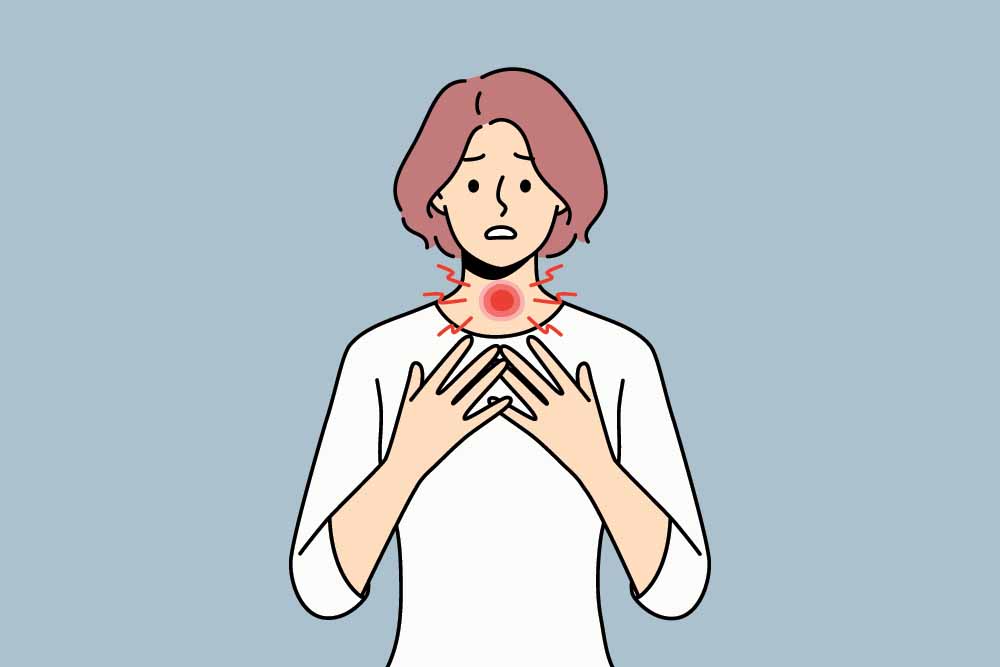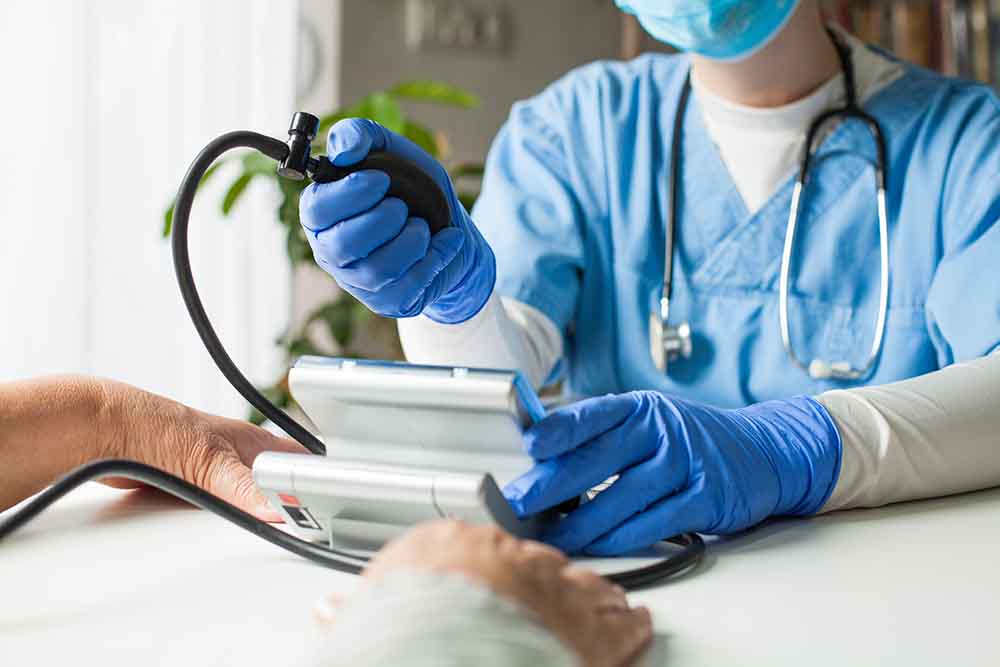Medically, an underactive thyroid gland is known as hypothyroidism. When you have hypothyroidism, your thyroid produces insufficient amounts of vital hormones. Thankfully, doctors can diagnose and treat hypothyroidism. Additionally, one can assist their doctor in identifying the problem by being somewhat informed about its symptoms. The thyroid gland is located lower down at the front of your neck. It produces and releases hormones that have an impact on almost every bodily organ - your skin, muscles, brain, and heart.

Your metabolism, or how your body's cells use the energy you acquire from meals, is regulated by these hormones. Your metabolism influences your ability to burn calories and energy-related processes, such as heart rate and body temperature. Your metabolism and bodily functions slow down if your thyroid produces less than your body’s requirement. Additionally, your entire body experiences issues as a result of the reduction in energy generation.
Dr Rupali Satija, DNB Family Medicine explains that although hypothyroidism and hyperthyroidism are very different from each other, a person suffering from hypothyroidism might sometimes present symptoms of hyperthyroidism as well.
Here are some conditions where that can occur:
• Hashitoxicosis (a transient phase of Hashimoto’s thyroiditis) - In Hashimoto's thyroiditis, the thyroid is being attacked by the immune system. Early in the disease, the gland may leak thyroid hormones, causing temporary hyperthyroid symptoms, even though the person is heading toward hypothyroidism. This phase is temporary and is usually followed by hypothyroidism.
• Overmedication of hypothyroidism.
• Other illnesses along with thyroid disorders such as anxiety.
Difference Between Hyperthyroidism And Hypothyroidism
Imagine your thyroid is like the ‘speed dial’ of your body. If it's working too slowly, you feel sluggish and heavy. On the other hand, if it's working too fast, you feel hyper and jittery.
Hypothyroidism = Thyroid is too slow
(Like your body is stuck in slow motion)

Common Symptoms:
• You feel tired all the time
• You may gain weight even if you’re not eating more

• You feel cold, even when others feel fine
• Your skin is dry, and hair may fall out
• You feel sad or depressed
• Your period flow may be heavier or more frequent
• You may feel constipated or slow in every way, like you are in ‘low battery mode’
Hyperthyroidism = Thyroid is too fast
(Like your body is on overdrive)
Common Symptoms:
• You feel restless, like you can't relax
• You may lose weight even if you're eating well
• You feel hot or sweaty all the time
• Your heart races or you feel your palpitations

• You may feel anxious or irritable
• Your period flow might be lighter or barely there
• You may have diarrhoea or may visit the loo often
• Your hands may tremble (shaky hands)
Treatment
The treatment usually involves taking medication which can help boost the thyroid gland. Lifestyle changes, although not a substitute, can help in maintaining the thyroid levels to a normal range. Usually the doctor will recommend that you start with a minimum dosage and assess how your body responds, in order to fix a dose that you have to take every day.

Lifestyle Changes & Precautions
Diet & Nutrition: What to include
• Iodine (if deficient): iodised salt, seaweed (in moderation)
• Selenium: Brazil nuts (1–2 per day), sunflower seeds, eggs
• Zinc: Pumpkin seeds, lentils, whole grains
• Iron & B12: Spinach, red meat, fish, supplements if low
• Vitamin D: Sunlight, fortified foods, or supplements
• Anti-inflammatory foods: Berries, leafy greens, fatty fish
What to limit or avoid:
• Goitrogens (if consumed in excess and raw): These include raw broccoli, cauliflower or cabbage
• Soy products: They can interfere with hormone absorption
• Highly processed foods: These can lead to fatigue, weight gain, and inflammation
• Too much fibre: It may interfere with medication absorption
Medication Timing Tip:
Take levothyroxine on an empty stomach (30–60 minutes before breakfast). Wait at least 4 hours before taking calcium, iron, or multivitamins.

Stress Management
Hypothyroidism slows the body, but stress can worsen symptoms like fatigue, anxiety, and hormonal imbalance. Try yoga or light stretching, meditation/breathing exercises, walking in nature, and setting realistic daily goals, Stress hormones like cortisol can suppress thyroid function further.
Sleep Hygiene
Your body heals during sleep — hypothyroidism can cause insomnia or oversleeping.
Tips:
• Go to bed and wake up at the same time daily
• Avoid screens an hour before bed
• Create a cool, dark sleeping space
• Avoid caffeine after 2 pm
Weight And Metabolism Support
• Eat smaller, balanced meals every 4–5 hours
• Avoid skipping meals (slows metabolism further)
• Stay hydrated
• Be patient — weight loss with hypothyroidism is slow but possible when TSH is well-controlled

Routine Check-Ups & Monitoring
• Conduct TSH, Free T4, and T3 tests every 6 to 12 months (or more often if adjusting meds)
• Monitor cholesterol, blood sugar, vitamin D, B12, iron, selenium levels, and adjust levothyroxine as needed. Never skip or change the dosage without consulting your doctor.
As the thyroid gland handles the metabolism of our entire body, many things change within us if there are any issues. Since it is a hormone, it may cause disturbance in the functioning of other hormones in the body, especially in women.